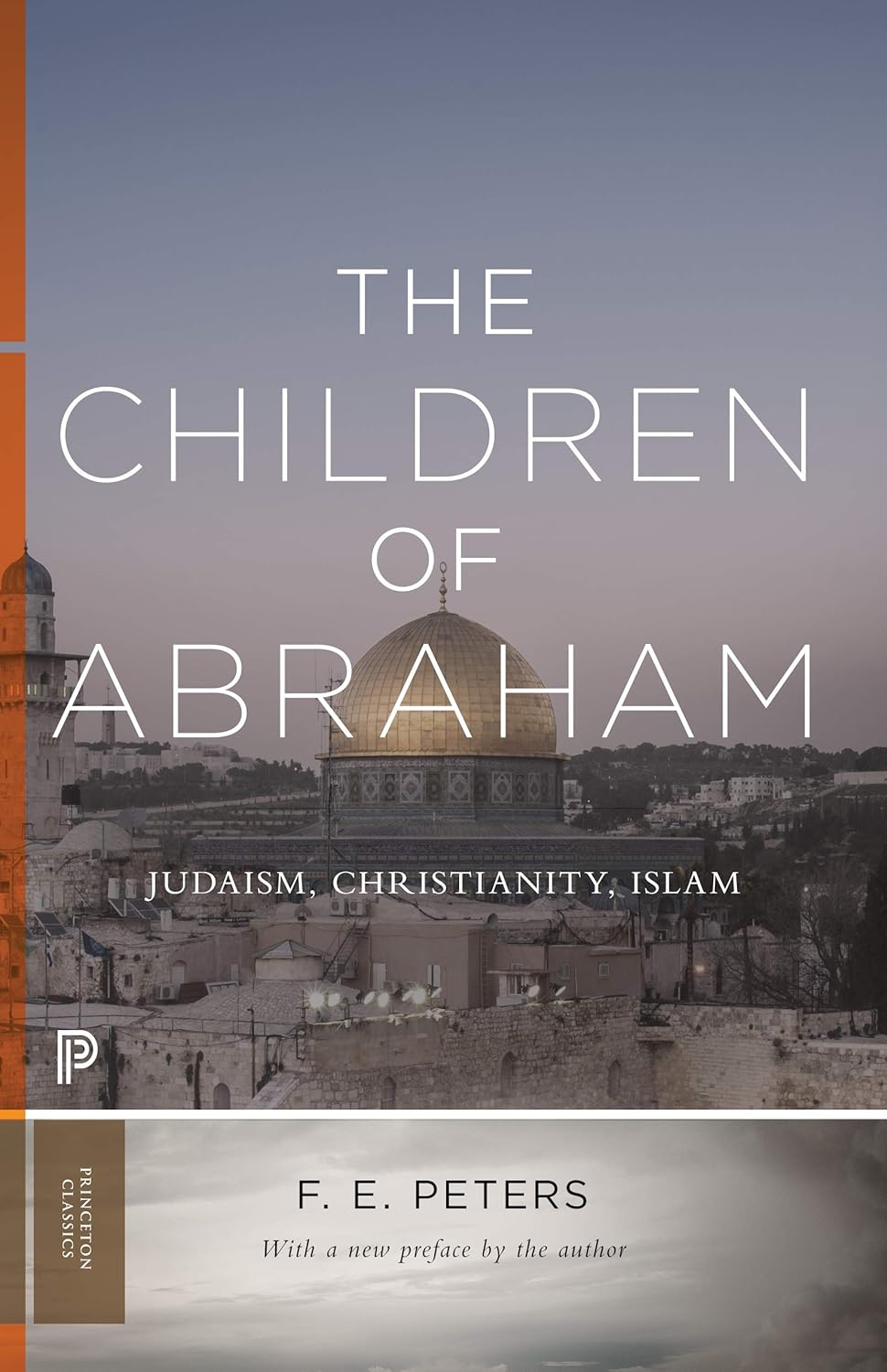Book Summary
In The Children of Abraham, Francis Edward Peters delivers a groundbreaking comparative study of Judaism, Christianity, and Islam, tracing their intertwined histories from the 6th century BCE to the Middle Ages. Originally published in 1982 and revised in 2004 and 2018, this Princeton Classics edition examines how these “People of the Book” share a common theological heritage—particularly the worship of a God who intervenes in history—while diverging in ritual, law, and community structures. Peters’ objective, nuanced approach avoids privileging any one tradition, making it a rare scholarly work that balances depth with accessibility
The book’s strength lies in its parallel exploration of scripture (Torah, Bible, Quran), worship practices, and theological evolution. Peters highlights pivotal moments like the Jewish return from Babylonian exile and the medieval crystallization of Islamic jurisprudence. Critics praise its “direct and accessible” prose, though some note the dense footnotes demand careful reading. Winner of Choice‘s Outstanding Academic Title award, it remains a vital resource for understanding today’s interfaith dialogues
Key Themes
Peters frames Judaism, Christianity, and Islam as “contested heirs” to Abraham’s covenant, analyzing how each tradition reinterpreted shared narratives like the Binding of Isaac (or Ishmael in Islam). The book meticulously compares their approaches to divine law (Halakha, Canon Law, Sharia), scripture as living tradition, and the tension between institutional hierarchy and mystical movements (e.g., Kabbalah, Christian monasticism, Sufism)
A recurring theme is how Greek philosophy influenced all three religions’ theological frameworks—from Maimonides’ Aristotelianism to Aquinas’ scholasticism and Ibn Sina’s metaphysics. Peters also underscores their divergent responses to political power: Judaism’s rabbinic adaptation to diaspora, Christianity’s imperial embrace under Constantine, and Islam’s fusion of spiritual and temporal authority
What Makes It Unique
Peters pioneered comparative Abrahamic studies long before interfaith dialogue became mainstream. Unlike faith-specific histories, his “triplicate” method juxtaposes doctrines like incarnation (unique to Christianity) and prophethood (emphasized differently in Judaism and Islam) with remarkable objectivity. The 2018 edition adds updated footnotes contextualizing post-9/11 religious tensions, making it timely despite its medieval cutoff
The book’s structure stands out by organizing comparisons thematically (e.g., “Scripture and Tradition,” “Worship of God”) rather than chronologically. This allows readers to grasp conceptual parallels—like prayer rituals or eschatology—across traditions. Peters’ wit surfaces in passages dissecting theological debates, such as whether the Quran’s createdness or the Trinity’s paradox sparked fiercer polemics
Reader Reactions
Academic reviewers hail Peters’ “measured and thoughtful” approach, with Harvard’s William Graham calling it the best survey of “conjoined tradition” . General readers appreciate its clarity but note the medieval focus leaves modern dynamics unexplored. One Amazon reviewer said: “Perfect primer for understanding the origins of the Old Testament, New Testament, and Quran”
Critiques include uneven coverage of Eastern Christianity and sparse attention to gender. Yet even skeptics agree, as Jane McAuliffe notes, no other volume offers such “broad erudition in a compact, beautifully written format”. The book’s balance earns praise from Jewish, Christian, and Muslim scholars alike—a rarity in polarized times
About the Author
Francis Edward Peters (1927–2020) was a NYU professor emeritus of Middle Eastern and Islamic studies, trained as both a classicist and Quranic scholar. His 20+ books include The Monotheists and The Voice, The Word, The Books. Peters’ unique expertise bridged Greek philosophy and Semitic theology, allowing him to trace Hellenistic influences across all three faiths
This book reflects Peters’ career-long mission to contextualize Islam within Judeo-Christian studies without reductionism. His Princeton PhD and Encyclopaedia of the Qur’an editorship lent authority to his comparisons—though he cheekily noted that comparing religions “requires a taste for herding cats”
Memorable Quotes
“The Muslims themselves refer to [Jews, Christians, and Muslims] as ‘People of the Book,’ share much common ground. Most notably, each embraces the practice of worshipping a God who intervenes in history.”
“Sacred history is not just a record; it is a mandate… The past is prologue to redemption.”
